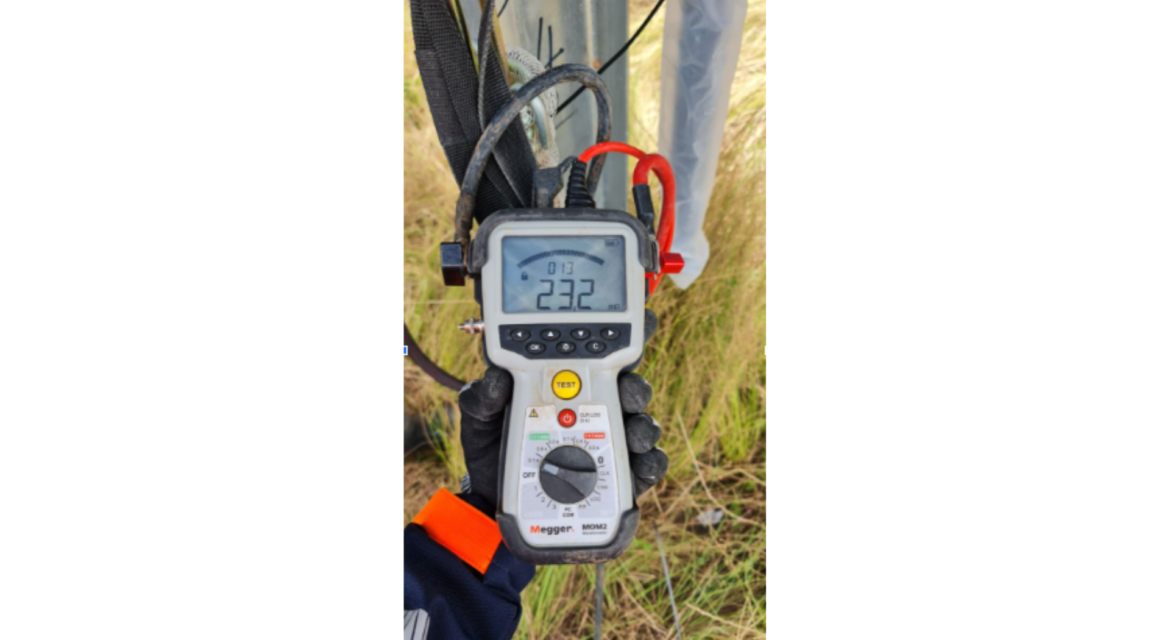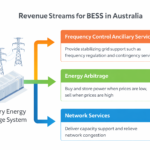Commissioning a 5 MW solar farm is the final step that transitions a project from construction into a safe, grid-connected operation. For distribution-connected solar farms, the commissioning process is governed by the Distribution Network Service Provider (DNSP). As such, electrical contractors in Sydney should follow strict technical and compliance requirements.
This stage goes beyond energising equipment and follows a structured, evidence-based process. With that, it requires Commissioning Management Plans (CMPs), Inspection & Test Plans (ITPs), Inspection & Test Reports (ITRs), and Current Injection Testing (CIT). Without these, the DNSP will not grant approval to connect and export power.
The Role of the Commissioning Management Plan
The Commissioning Management Plan is the foundation of a successful commissioning process of a 5 MW solar power plant. It defines the following:
- Testing methodology and acceptance criteria
- Safety procedures and energisation sequencing
- Roles and responsibilities for contractors, consultants, and DNSP representatives
- Documentation requirements for compliance close-out
Before commissioning can begin, a well-prepared CMP should be submitted to and approved by the Distribution Network Service Provider. This minimises delays, ensures alignment across stakeholders, and compliance with local regulations. It also provides the framework for ITPs and ITRs.
Inspection & Test Plans: Setting the Standard
An ITP refers to the detailed standard procedure for testing critical solar farm assets, which includes:
- High-voltage switchgear & protection relays – functional and protection trip testing
- High-voltage (HV) cables – insulation resistance, continuity, and VLF withstand tests
- Distribution transformers – ratio checks, vector group verification, winding resistance, insulation integrity
Each ITP outlines the scope, sequence, and acceptance criteria for equipment testing. Electrical contractors in Sydney rely on these plans to provide the roadmap for systematic validation before energisation.
Inspection & Test Reports: Proving Compliance
The Inspection & Test Plan defines the process, while the Inspection & Test Report documents the results. This documentation records the following:
- Test outcomes (pass/fail)
- Deviations and corrective actions taken
- Equipment calibration details
- Final confirmation that acceptance criteria were met
When it comes to construction project management, ITRs provide the compliance evidence package required by the DNSP for project close-out. Hence, weak or incomplete reports often result in rework, extra site visits, and added cost.
Current Injection Testing: Verifying Earthing Compliance
Earthing is one of the most important safety aspects of commissioning. The Current Injection Testing confirms that step and touch voltages around the solar farm are within safe limits. This process involves:
- Simulating fault current via an injection circuit
- Measuring earth grid resistance relative to remote earth
- Assessing step, touch, and transfer potentials against Australian electrical regulations (AS/NZS 3000, NS161)
- Documenting compliance before energisation
Without a compliant earthing test, electrical contractors in Sydney cannot secure the Distribution Network Service Provider’s approval for energisation. Thus, the commissioning of the 5 MW solar farm can’t proceed to the final step of the process.
DNSP Witness Testing and Final Approval
Once CMP, ITP/ITR, and CIT requirements are met, the DNSP conducts witness testing. This step involves the following:
- Supervising energisation of HV equipment
- Observing the inverter, transformer, and protection system operation
- Confirming compliance with connection agreement settings
- Reviewing the documentation package for close-out
When witness testing is successful, the DNSP issues a formal approval for the farm to connect and export power. At this stage, the solar farm is considered fully commissioned and commercially operational.
Why a Strong Commissioning Framework Matters
For electrical contractors in Sydney, a poorly managed commissioning can cause significant setbacks in solar farm projects. This includes incomplete or inaccurate documentation and repeated costly on-site procedures. In addition, these issues also risk DNSP rejections, causing project delays and undermining stakeholder confidence.
Meanwhile, a strong commissioning framework provides structure and certainty throughout the process. It ensures safety by verifying that all HV equipment and systems meet Australian standards, while also satisfying DNSP technical requirements. As a result, grid integration challenges are managed, costly rework is reduced, and approval timelines are shortened.
Partner with ElectraGlobe for Seamless Commissioning
A strong commissioning framework is important for safely and efficiently completing a 5 MW solar farm project. Through defining clear testing procedures, compliance standards, and responsibilities, every stage is implemented without unnecessary delays. This structured approach reduces costly rework, secures DNSP approval, and enables timely grid integration.
ElectraGlobe’s team of electrical contractors in Sydney supports clients’ commissioning process through every step. This includes developing CMPs, preparing and executing ITPs and ITRs, and performing and reviewing CIT results. It also involves coordinating with DNSPs during witness testing. For more information on our range of services, visit our website today!
Frequently Asked Questions (FAQs)
Here are answers to frequently asked questions to guide project developers through the commissioning process for solar farms:
Who approves the 5 MW solar farm commissioning?
For sub-5 MW projects, the DNSP is the approving authority. They review CMPs, witness testing, and confirm compliance before allowing export.
What documents are required for commissioning approval?
The documents required for solar farm commissioning approval typically include a CMP, ITPs, ITRs, and CIT results, which need to be approved by the Distribution Network Service Provider.
How long does commissioning take?
Commissioning usually takes 3 to 6 weeks, including documentation review and witness testing. This depends on the solar farm site’s readiness and DNSP scheduling.







